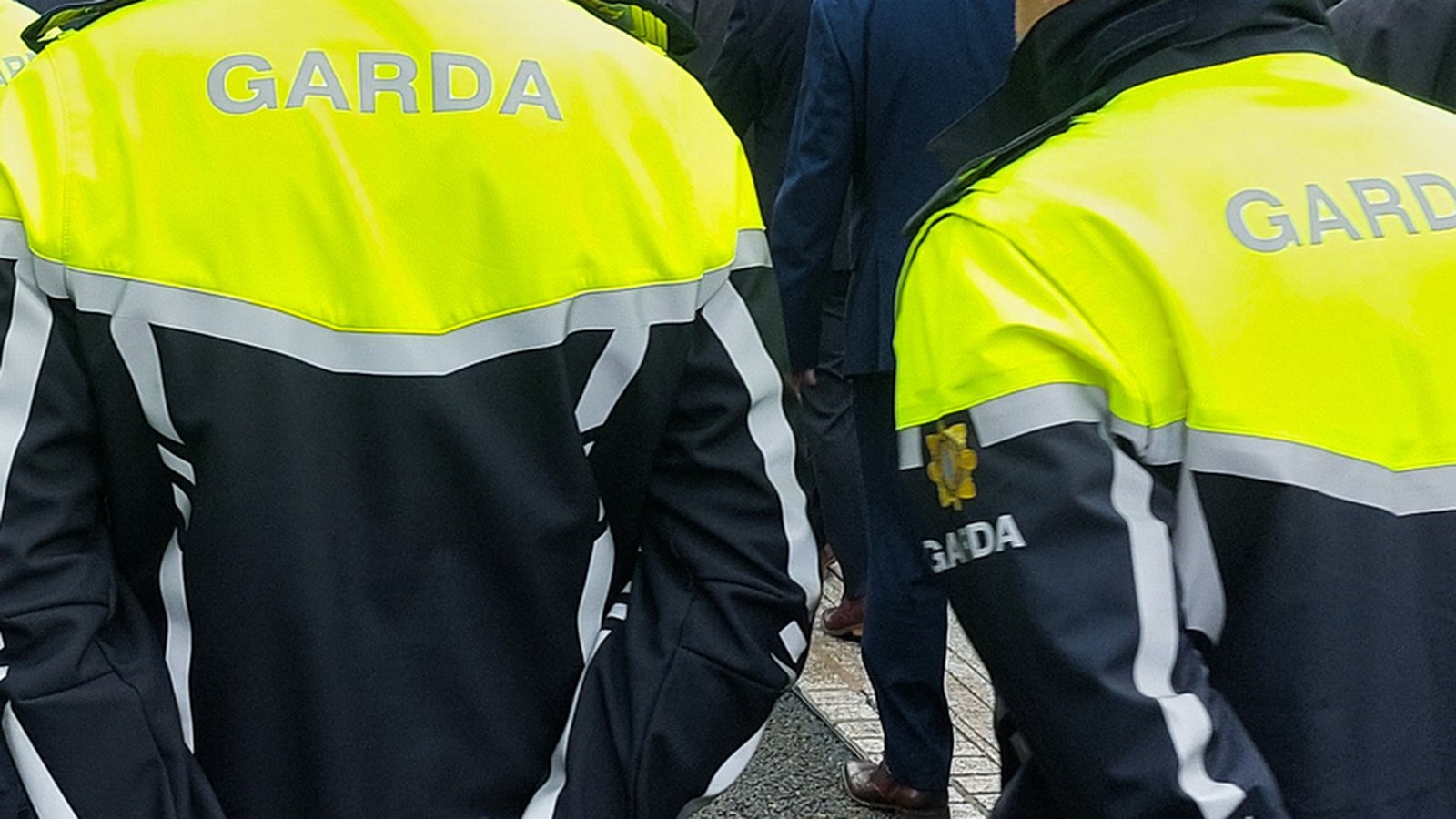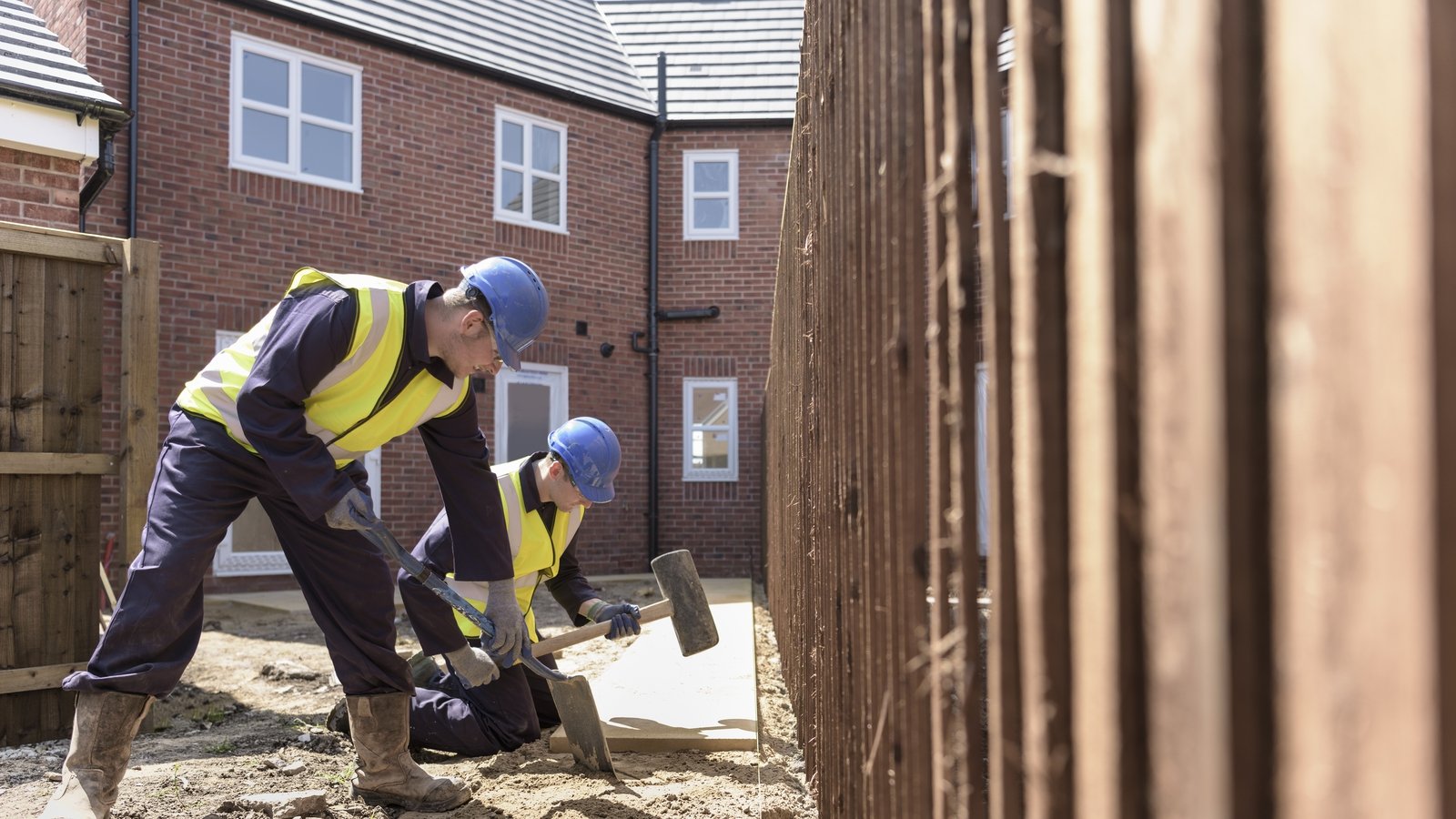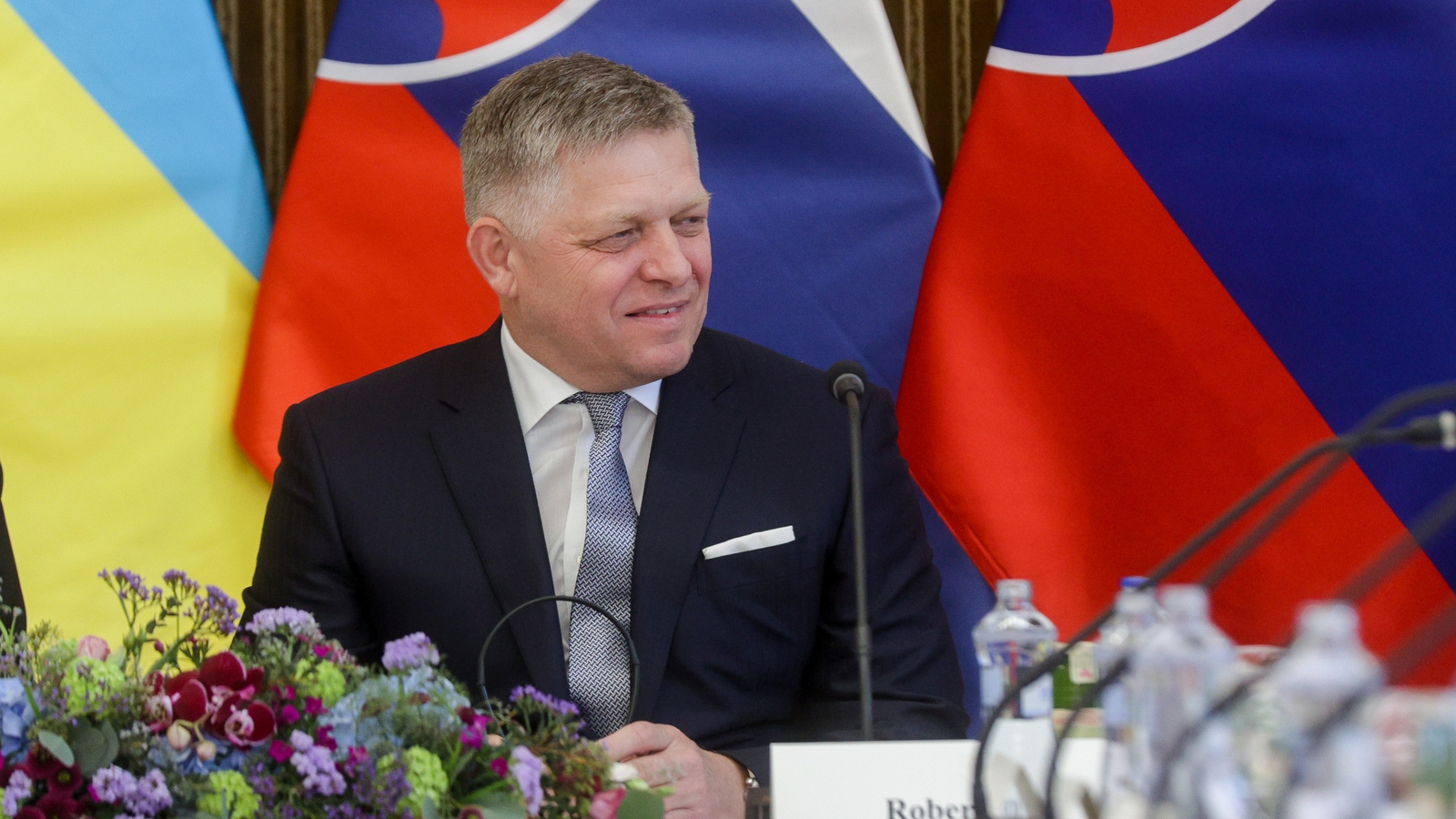Lull in Gaza fighting despite blasts in south
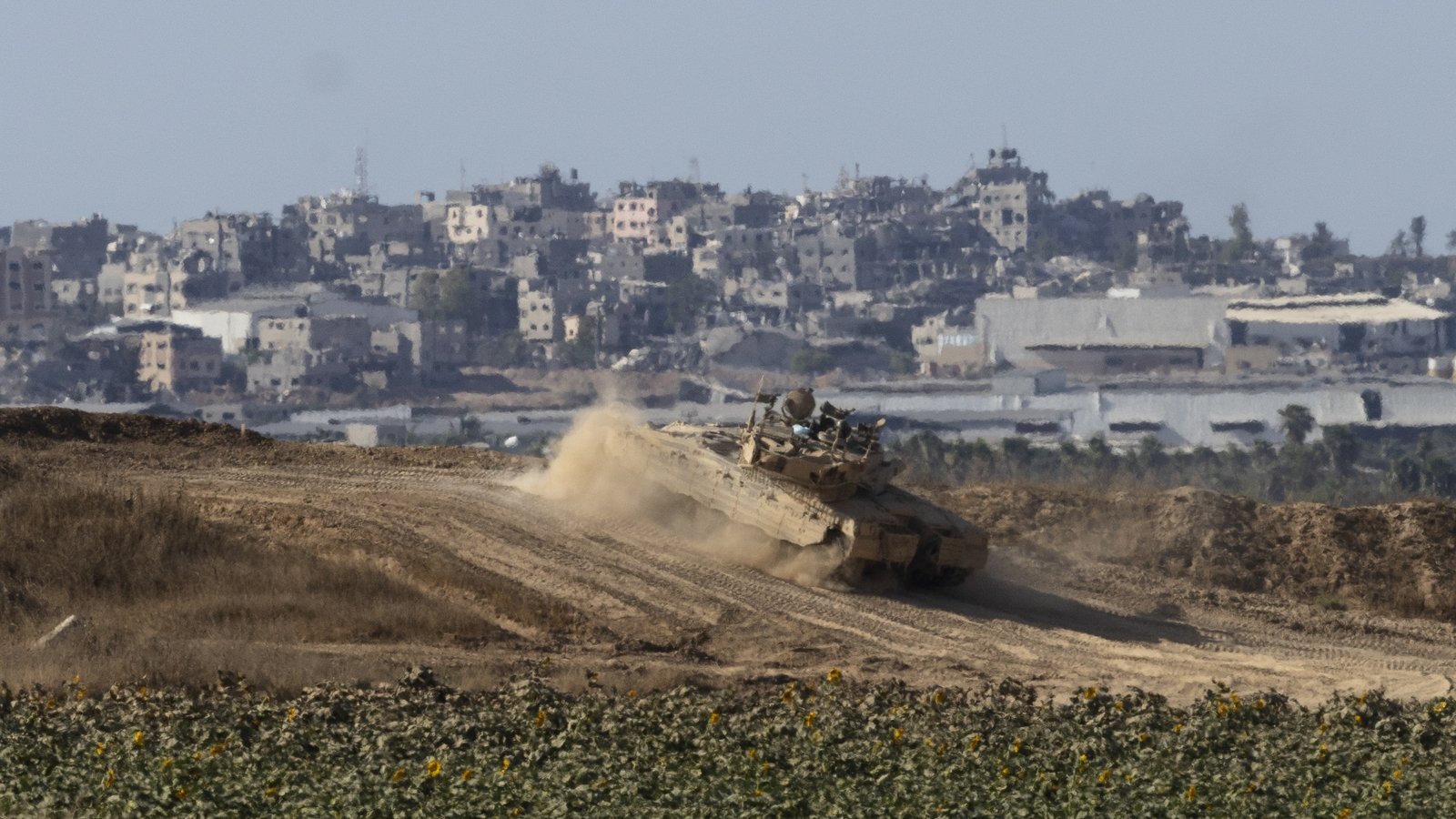
Israeli forces have struck Gaza with witnesses reporting blasts in the besieged territory’s south, but fighting has largely subsided on the second day of an army-declared “pause” to facilitate the flow of aid.
The relative calm came as Israel’s Prime Minister Benjamin Netanyahu dissolved his war cabinet, reflecting the country’s political fractures.
David Mencer, spokesman for the prime minister’s office, said the body had been disbanded following the resignation of centrist leader Benny Gantz, who had required a war cabinet’s formation in order to join a unity government.
Mr Mencer said the war cabinet’s duties will be taken over by the pre-existing security cabinet which had finalised decisions proposed by the war cabinet.
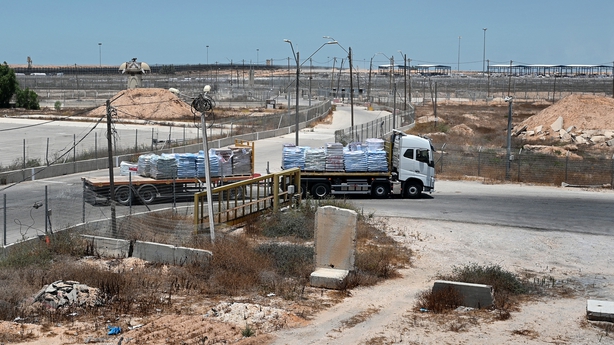
Israeli media said the move was meant to counter pressure from far-right politicians seeking a greater say in decision making.
The daytime “pause” for aid deliveries around a southern Gaza route, announced at the weekend by Israel’s military, appeared to be holding yesterday.
The health ministry in Hamas-ruled Gaza said it had recorded 10 deaths over the previous 24 hours, in one of the lowest daily tolls since the war began.
Hamas’s unprecedented 7 October attack on southern Israel triggered the war and resulted in the deaths of 1,194 people, mostly civilians, according to an AFP tally based on Israeli official figures.
The militants also seized 251 hostages. Of these, 116 remain in Gaza, although the army says 41 are dead.
Israel’s retaliatory offensive aimed at eliminating Hamas has killed at least 37,347 people in Gaza, also mostly civilians, according to the territory’s health ministry.
Swathes of the territory’s residential and other infrastructure have been reduced to rubble.
Yesterday witnesses told AFP they could hear blasts in the centre and west of the southernmost city of Rafah.
Palestinian officials there reported tank shelling early in the morning, before the start of the daily “local, tactical pause of military activity” announced by the army.
Elsewhere in the Palestinian territory an AFP correspondent said strikes and shelling have decreased.
In Gaza City, medics at Al-Ahli hospital said at least five people were killed in two separate air strikes, and witnesses reported tank shelling in the Zeitun district.

At least one strike hit Bureij refugee camp in central Gaza, residents said.
The military said the pause “for humanitarian purposes will take place from 8am (6am Irish time) until 7pm (5pm Irish time) every day until further notice along the road that leads from the Kerem Shalom crossing to the Salah al-Din road and then northwards”.
Troops were still operating in Rafah and central Gaza, reporting “close-quarters combat” that killed several militants, the military said.
Since ground forces went into Rafah against Hamas in early May, they say they have killed hundreds of militants and found “hundreds” of tunnel shafts, according to a military statement.
“There was no change” in the military’s policy and fighting “continues as planned”, an Israeli official stressed, speaking on condition of anonymity to AFP.
Mahmud Basal, spokesman for Gaza’s civil defence agency, said that apart from the deadly Gaza City strikes, “the other areas of the Gaza Strip are somewhat calm”.
The UN says aid access to Gaza has been severely hindered by factors including insecurity, the closing of crossing points to the territory, and Israeli procedural delays.
The vital Rafah crossing with Egypt has been shut since Israeli forces seized its Palestinian side in early May.
“The idea behind the tactical pause in general is to allow for the UN to collect and distribute more aid,” Shimon Freedman, spokesman for COGAT, the Israeli defence ministry body overseeing Palestinian civilian affairs, told reporters at Kerem Shalom, near Rafah.
In a message late on Sunday for Eid al-Adha, the Muslim feast of sacrifice, US President Joe Biden called for implementation of a ceasefire plan he outlined last month, saying it was “the best way to end the violence in Gaza”.
Mr Biden’s plan would bring an initial six-week pause to fighting and Hamas would free hostages in exchange for the release of Palestinian prisoners held by Israel.
Hamas has insisted on the complete withdrawal of Israeli forces and a permanent ceasefire. Mr Netanyahu’s far-right coalition partners strongly oppose a ceasefire.
He is also facing regular street protests by tens of thousands demanding a deal to free the hostages.
But a senior Israeli negotiator, who told AFP that tens of hostages “are alive with certainty”, said that Israel could not commit to ending the war until all the captives were released.
The official said the Israeli negotiating team had approved Mr Biden’s plan.
“We expect, and are waiting for, Hamas to say ‘yes,'” he said on condition of anonymity as he was not authorised to speak publicly on the issue.
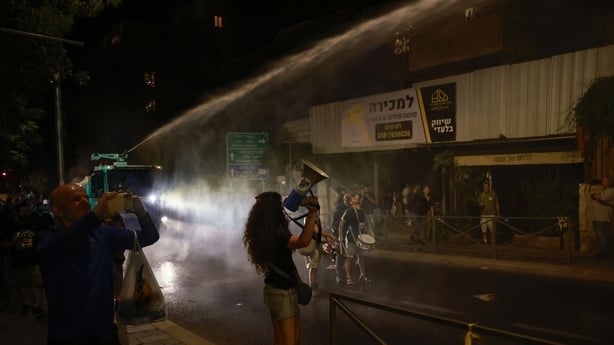
Thousands of Israelis turn out for anti-government protest
Thousands of Israelis protested against Prime Minister Benjamin Netanyahu’s government over the Gaza war and failure to negotiate the release of scores of hostages still held in the Palestinian territory.
Protests against Mr Netanyahu’s handling of the war against Hamas militants have gathered pace, with tens of thousands taking to the streets of Israel’s biggest city, Tel Aviv, every weekend.
However, protesters travelled to Jerusalem to rally outside the Israeli parliament and Mr Netanyahu’s residence, clashing with police and urging new elections as part of what has been dubbed a week of disturbance by activists.
“Every action that he does is in the direction of the destruction of Israel. He was responsible for what happened on 7 October,” said retired civil engineer Moshe Sandarovich, 73.
“Now he is destroying everything. Even if there is war now, every day that the war goes on with him, is a worse day,” he added.
Nine people were arrested, some of them in connection with violence that left police officers “slightly injured”, Israeli police said in a statement overnight.
Armed with drums, horns and placards calling for fresh elections, thousands of protesters old and young called for a ceasefire to bring the remaining Gaza hostage’s home.
After speeches by activists addressing the crowd, protesters shouted “All of them! Now!” to call for a full hostage return, before holding a sombre moment of silence for those left in the Hamas-controlled territory.

